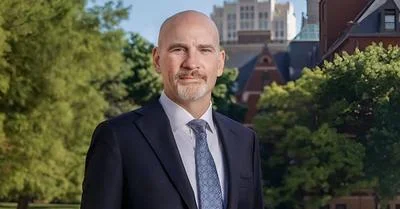Mun Y. Choi, PhD, President | University of Missouri
Mun Y. Choi, PhD, President | University of Missouri
Triple-negative breast cancer (TNBC) accounts for approximately 15% of all breast cancer cases globally. It is notably challenging to treat due to the absence of three common receptors that most therapies target. Consequently, TNBC patients often undergo high doses of non-targeted chemotherapy, leading to severe side effects such as hair loss, nausea, and pain. The metastasis of TNBC cells to other organs like the brain or lungs is the primary cause of mortality in these patients.
A recent study from the University of Missouri proposes a novel approach to treating TNBC by targeting cholesterol synthesis.
Salman Hyder, a professor in Mizzou’s College of Veterinary Medicine, led the study alongside Yayun Liang, an investigator in the same college. They discovered that a cholesterol biosynthesis inhibitor known as an RO compound can target a specific enzyme in individuals with TNBC. This RO compound not only kills tumor cells but also prevents the formation of blood vessels necessary for cancer tumors to grow.
“Cancer cells can replicate very rapidly and become a tumor, but they need cholesterol,” Hyder said. “A lot of energy is required for this process, and mitochondria involved in energy production require cholesterol biosynthesis because both tumor cells and mitochondria need membranes to be reproduced over and over again.”
Hyder’s lab is the first to demonstrate that the RO compound can effectively inhibit cholesterol biosynthesis in those with TNBC, potentially paving the way for human clinical trials that could offer an alternative to traditional chemotherapy and its painful side effects.
“Our ultimate goal is to make life better for those who are suffering from this disease by offering a less toxic alternative to chemotherapy,” said Hyder, the Zalk Endowed Professor in Tumor Angiogenesis. “My entire career has been spent researching breast cancer. Since no drug had been found that specifically targets TNBC, I have been on a mission to find a solution, and this new finding is very promising.”
The findings titled “Cholesterol biosynthesis inhibitor Ro 48-8071 suppresses growth of triple-negative breast cancer cells by inducing apoptosis and suppressing angiogenesis” were recently presented at the annual Endocrine Society meeting in Boston.






 Alerts Sign-up
Alerts Sign-up